Culligan Water Softeners Offer High-Quality Water Solutions to Your Hard Water Problems
Experience Cleaner, Softer Water with Culligan
At Culligan of Oklahoma City, we specialize in providing top-of-the-line water softening solutions for homes and businesses. Our state-of-the-art Culligan water softeners are designed to reduce hard water minerals, offering you cleaner, softer water that improves your daily life.
Why Choose Culligan Water Softener Systems?
1. Improve Water Quality
Culligan water softeners help to reduce hard water minerals like calcium and magnesium. This prevents scale buildup on appliances, pipes, and fixtures, improving the lifespan of your plumbing and appliances.
2. Healthier Skin & Hair
Hard water can dry out your skin and hair. With Culligan softeners, your water will be gentle on your skin, leaving it feeling hydrated and smooth.
3. Save Money on Appliance Repairs
By preventing scale buildup, our water softeners help to extend the life of your dishwasher, water heater, and washing machine. With soft water, your appliances run more efficiently, saving you money on costly repairs and replacements.
4. Environmentally Friendly
Soft water helps reduce the amount of soap and detergent needed for cleaning. Use fewer cleaning products and cut down on your water usage, contributing to a more sustainable household.
Deals
Don’t Miss Out
Why Choose Culligan Water Softeners For Your Oklahoma City Home?
Our water softeners are second to none. But the real secret: We make water treatment easy.
-
Expert Installation. Easy To Use.
Culligan has been in the water treatment service business for more than 85 years…and it’s all we do. Your local Culligan delivers, installs and maintains your water softener system for you, so you don’t have to! No worries about shipping damage, unboxing, or installation location. Just schedule an appointment, then relax and enjoy the soft water!
-
Choose Expertise Over Generalists
There are dozens of softener brands. There are hundreds of types of pipe fittings. Your home is unique. Do you trust a third-party plumber to get it right? Your local Culligan knows its product, and is familiar with the homes in your area. Most importantly – we know how to install water softeners – it’s all we do!
-
Make Your Water Work For You
On the fence about whether you need a softener? You could enjoy these benefits – that pay themselves off in no time!
- 24% in energy savings by using softened cool water to wash clothes [1]
- 30% more out of your water-using appliances when water contaminants are filtered out [2]
- 50% in reduced detergent costs when washing laundry, hair and body in soft water [3]
-
Why Price Tags Are Deceptive
Unless you were an expert installer, you wouldn’t buy a water heater directly off Amazon. However, big box retailers, both in-store and online, take this transactional approach to homeowners for water treatment. They offer you low price tags for incentive. But what they don’t tell you about are the installation hassle, the third-party customer service on both ends, and how you’re left to your own devices to maintain your system – don’t forget, your home is unique. There is no one-size-fits-all solution. If you truly want to save throughout the life of your system, go with the expert!
Local Resources
Oklahoma City Hard Water
Top Products
The Most Popular Water Softeners for Oklahoma City
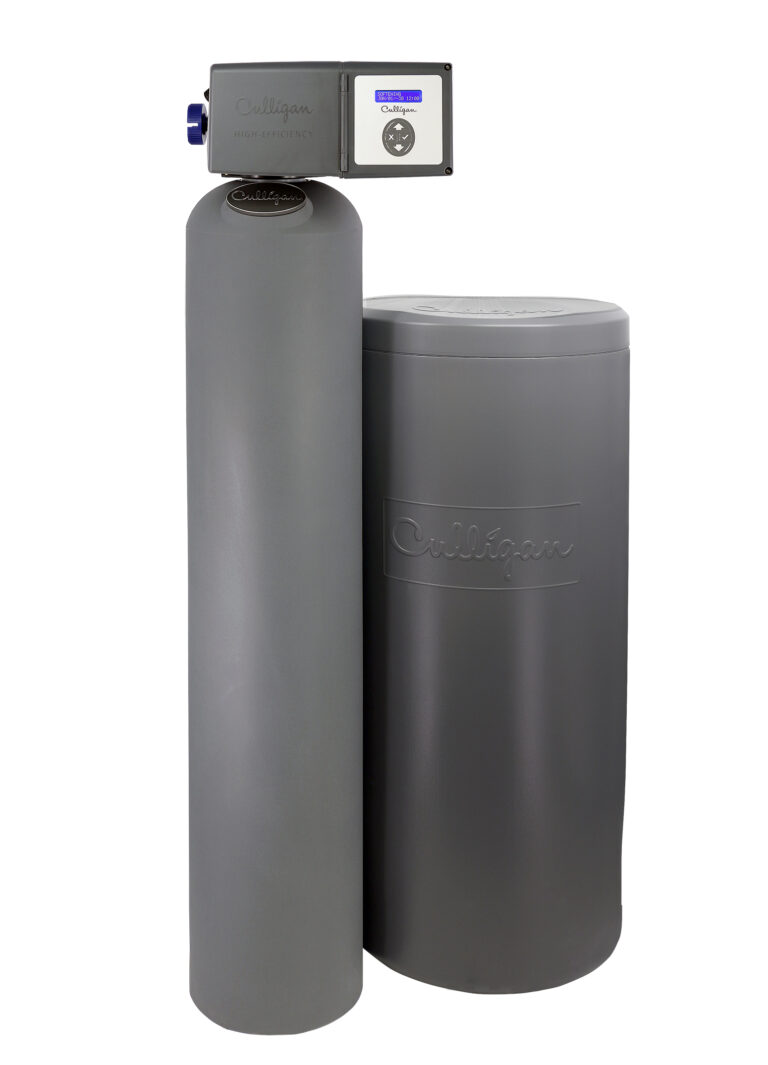
Aquasential™ Smart High Efficiency Water Softener
- Smart brine tank auto-monitors salt levels
- Convenient auto-bypass valve
- Reliable non-corrosive valve
- Worry-free maintenance
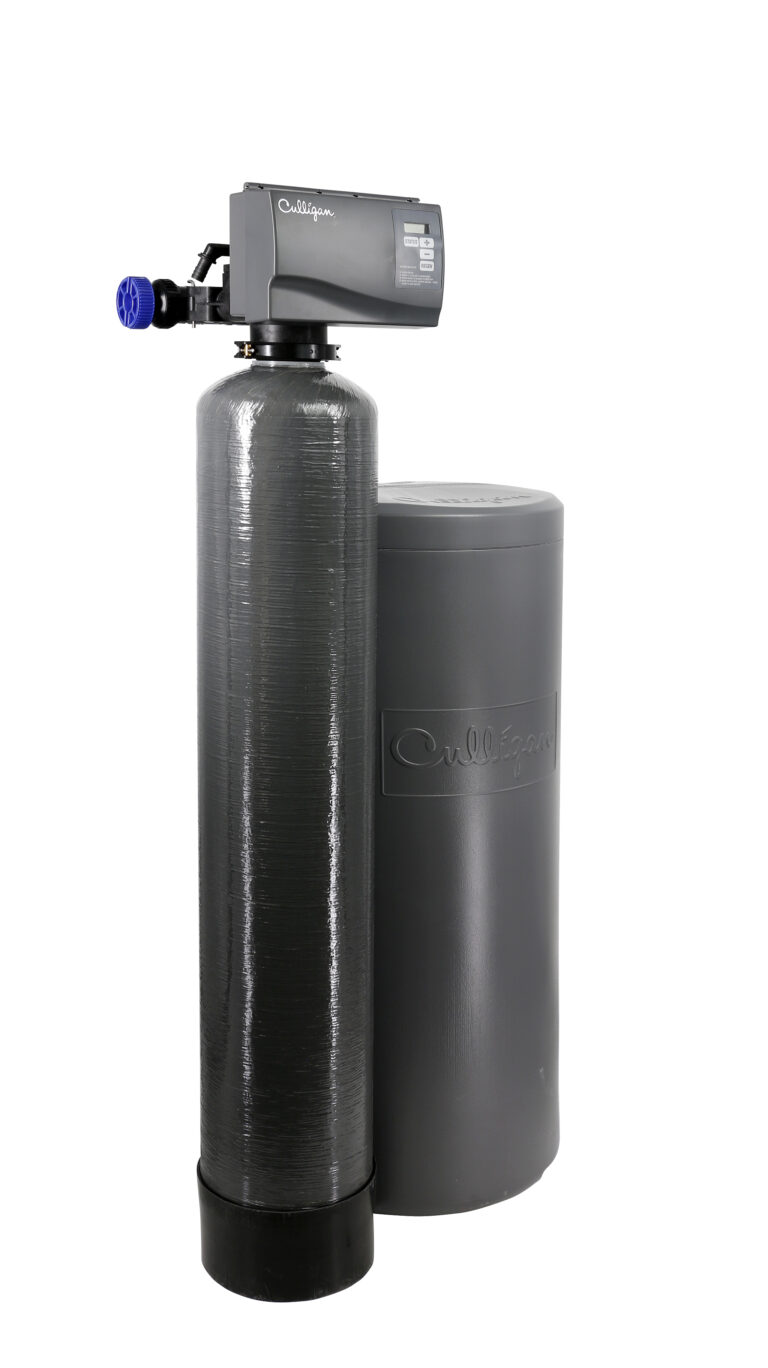
Aquasential™ Select Series™ Water Softeners
- Affordable design
- Backed by one of the most comprehensive
industry warranties - Filament-wound exterior and
non-permeable inner tank shell
The Proof
Why Do Oklahoma City Homeowners LOVE Us?
We recently went on well water and even though it's good water, it's very hard. The Culligan salesman was easy to work with and the techs were very fast and efficient at installing / setting up the softener.
These guys saved the day for us. Our hard water was so bad it was destroying all of our faucets and appliances. They were fast, friendly, and extremely professional.
The techs installed our new water softener quickly, without any problems. The softener is working great.
What’s In Your Water?
Get A FREE Water Test!
• No mailing — fast results!
• Test any tap in your home
• NEW flexible sample pickup options

| Best Selling Softener | Premium Performance | Large Households | Best Value | ||
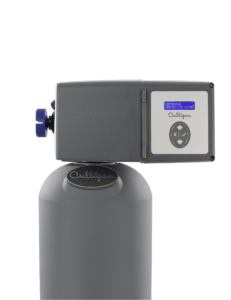 |
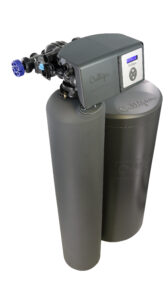 |
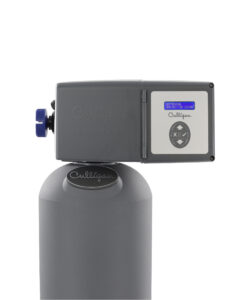 |
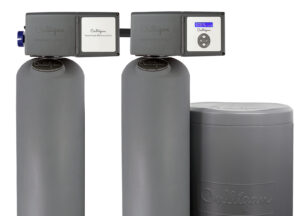 |
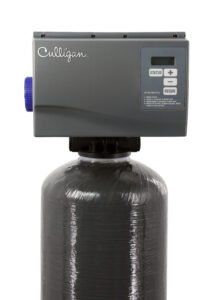 |
|
| Benefits | Culligan HE Smart Series | HE Smart Municipal Water Conditioner | HE Softener- Cleer | HE Twin and Progressive Flow | Aquasential Select Series |
| Reduces hard water spots and scale buildup | |||||
| Reduces the amount of shampoos, cleaners, and detergents needed | |||||
| Helps laundry look brighter and last longer | |||||
| Softens water and prevents scaling that reduces the life of water-using appliances | |||||
| Softens and filters water simultaneously | |||||
| Advanced sulfur filtration and water odor reduction | |||||
| Targets harder-to-treat iron and sulfur bacteria | |||||
| Great for removing chlorine |
| Best Selling Softener | Premium Performance | Large Households | Best Value | ||
 |
 |
 |
 |
 |
|
| System Features | Culligan HE Smart Series | HE Smart Municipal Water Conditioner | HE Softener- Cleer | HE Twin and Progressive Flow | Aquasential Select Series |
| Daily monitoring and system diagnostics | |||||
| Third-party certified and backed by a comprehensive warranty | |||||
| Automatic softener bypass onboard and via remote display | |||||
| Can be used outdoors | |||||
| Automatic Service Notifications sent directly to your Culligan Water Expert | |||||
| Remote water softening control to customize the "feel" of your water | |||||
| Automatic adjustment to changes in water conditions | |||||
| Operates even in power outages | |||||
| Guest Cycle provides extra soft water with the touch of a button |
| Best Selling Softener | Premium Performance | Large Households | Best Value | ||
 |
 |
 |
 |
 |
|
| Sizing and Compatibility | Culligan HE Smart Series | HE Smart Municipal Water Conditioner | HE Softener- Cleer | HE Twin and Progressive Flow | Aquasential Select Series |
| Fits small to moderate-size homes with 3/4" plumbing | |||||
| Great for any size home with 1" plumbing | |||||
| Great for homes with larger plumbing, 1-1/4" and higher flow rate | |||||
| Extra-large capacity for large homes and stubborn hard water |
You Have Questions
We Have Answers
Will my water taste salty?
No. A properly functioning water softener will never make your water taste salty. The small amount of sodium added to the water will never create a salty taste.
How do I know if I have hard water?
Hard water usually manifests itself in several ways. It leaves white residue behind wherever water evaporates. When hardness reacts with soaps and detergents, it leaves a sticky soap scum behind, and in hot water heating systems it leaves behind a hard scale. Hard water can also cause itchy, dry skin and dull hair.
How does a water softener work?
A water softener works through a process known as “ion exchange,” which means that as it removes calcium and magnesium (elements that make water “hard”), it replaces those ions on a one for one basis, usually with sodium. This means that the amount of sodium added to the water is directly proportional to how hard your water is. In most instances the amount being added is so small that it is not a significant contributor to the amount of sodium in your diet.
Will a water softener reverse the damage that has already been done to my appliances?
Yes, if your hard water has been building up scale in your appliances, once you install a softener it will begin to remove that built-up scale. It will take a long time to remove it, but it will remove it.
Will the softener remove all impurities from my water?
Unfortunately, no. A water softener is designed to remove hardness (calcium and magnesium) from water. They can sometimes remove a limited amount of iron and manganese if you happen to have these problems as well. But if you are looking for great water for drinking and cooking, you should probably consider a reverse osmosis system for that purpose.
Are there chemicals used or put into the water to soften the water?
Other than salt or potassium chloride, there are no other chemicals that a water softener uses. On the contrary, using a water softener reduces the amount of cleaning supplies and detergents that you need to put down the drain trying to keep your home and family clean. Using a water softener is very environmentally friendly.
How long after installation will I have soft water?
Once a softener is installed, it will begin to soften your water immediately, However, if you have a tank-type hot water heater, it may take a few days to use up that hard water, until you feel the full effects of soft water.
How often do I need to add salt?
Most good softeners today recharge based on how many gallons of water you use, and how hard your water is to start with. However, most of our customers today are adding salt once or twice a year, on average.

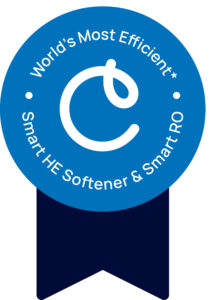
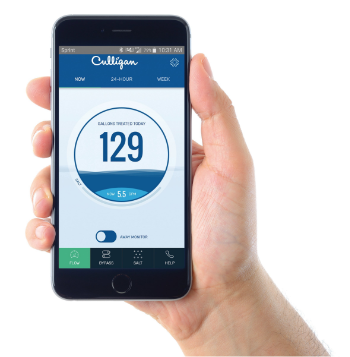
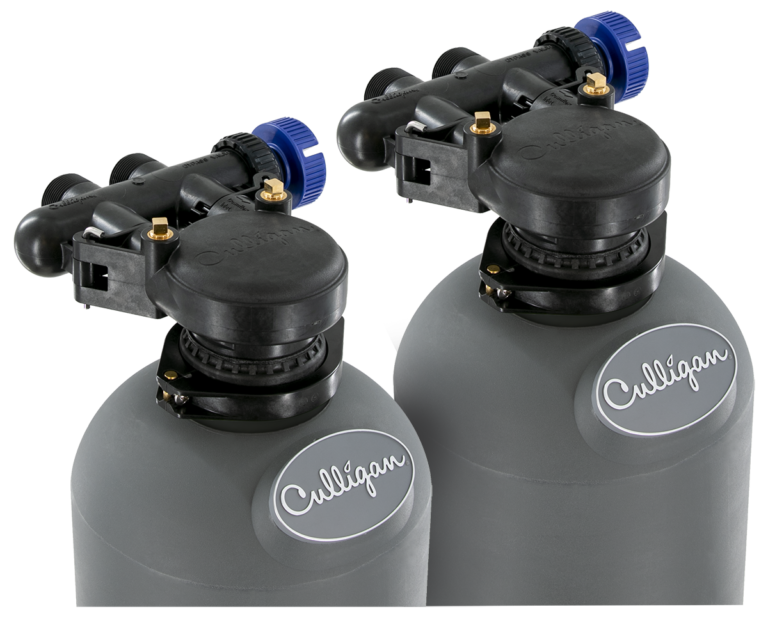
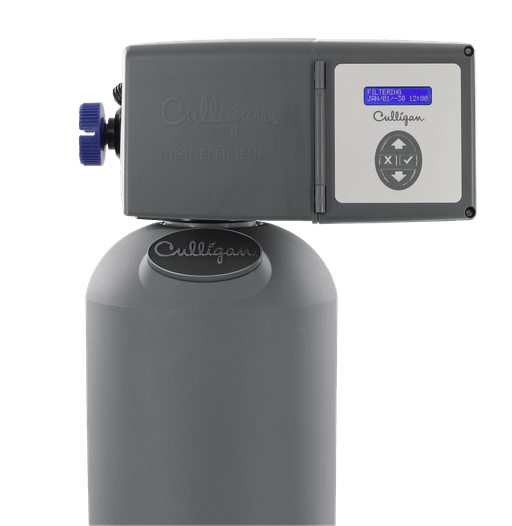

Facebook